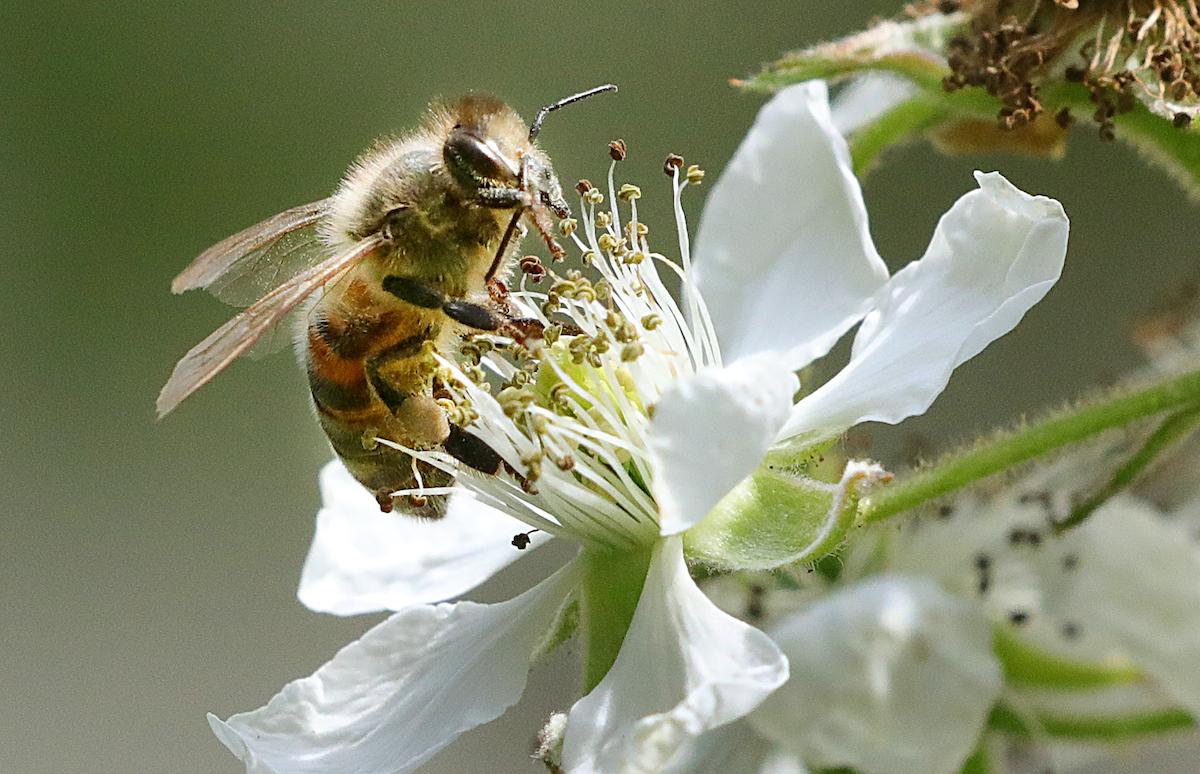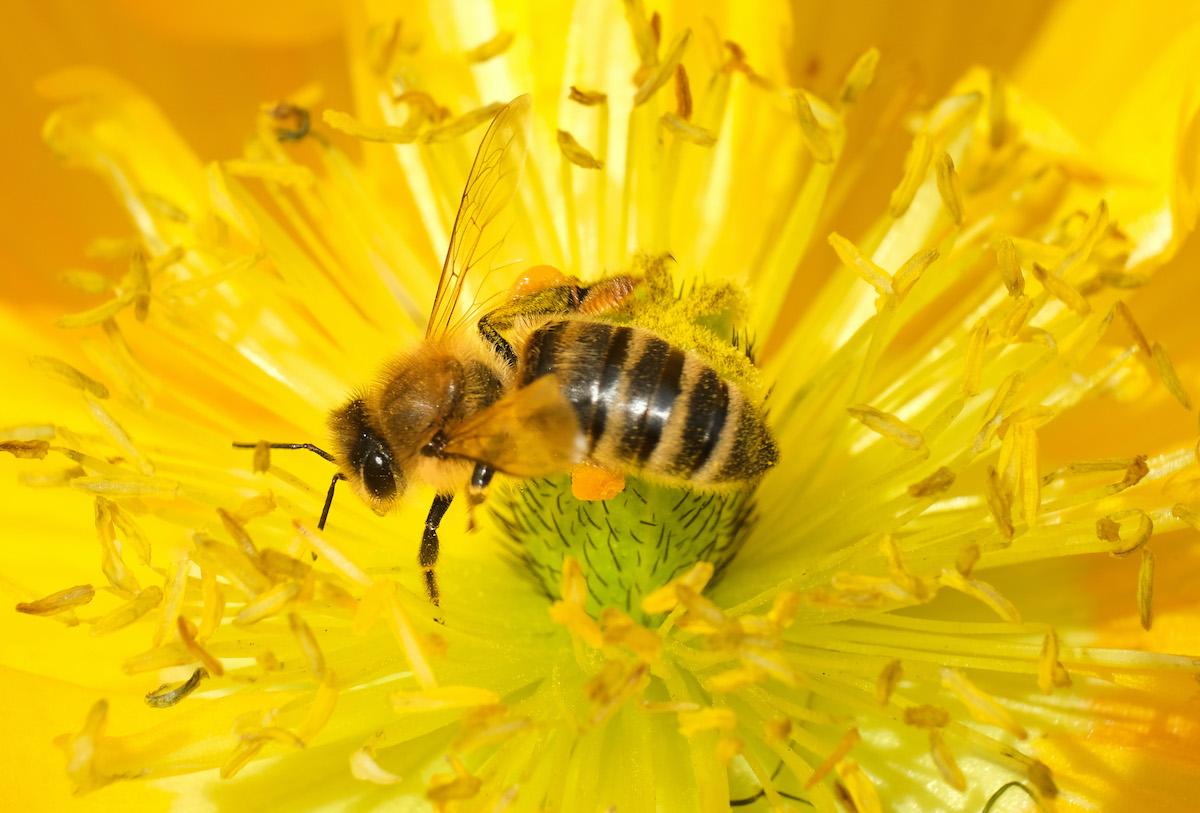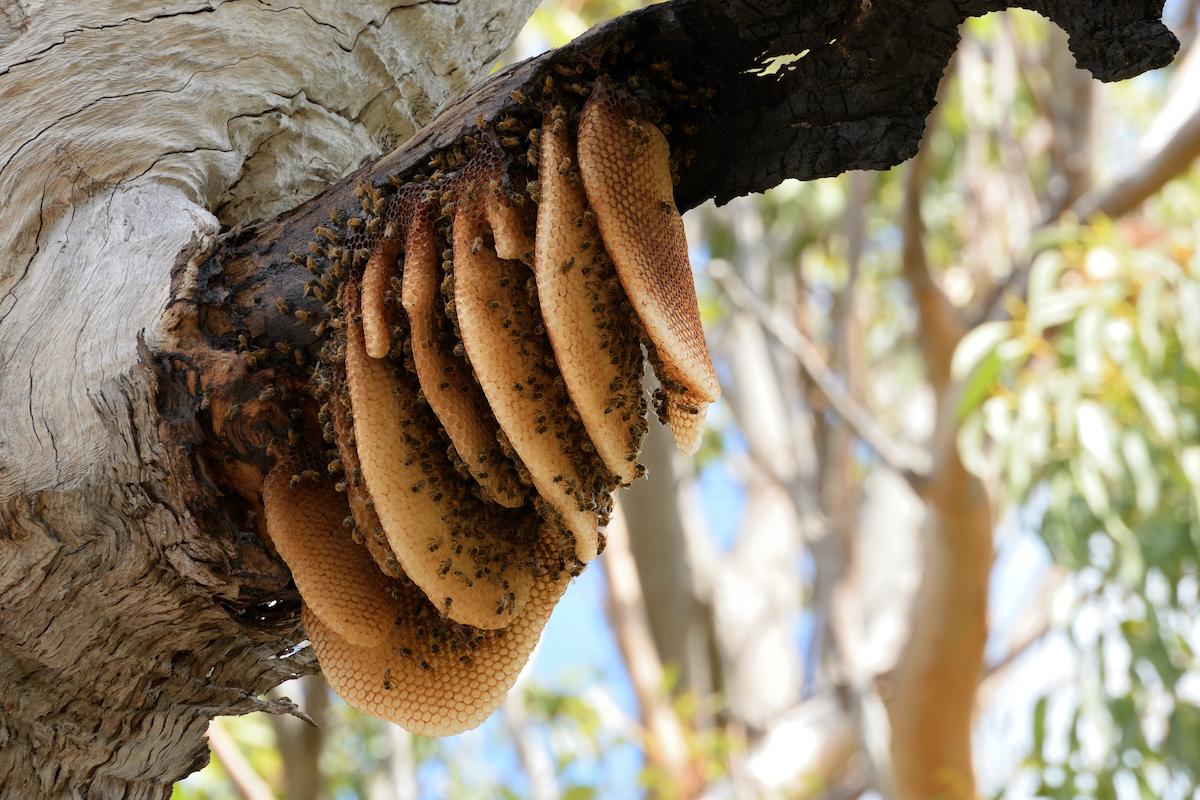How to Protect Bees in Honor of World Bee Day
Here are six ways you can honor bees on World Bee Day 2020 — and beyond.
Updated May 20 2020, 12:59 p.m. ET

Today, May 20, marks the third annual World Bee Day, a day that celebrates and honors the humble bee. Although you may not interact with bees on a daily basis (and the occasional moments that you do might be pretty stinging), bees are certainly sustaining your life on a daily basis. Bees are vital to life on Earth, and the least we can do is make sure to protect them.
Read on for everything you need to learn how you can protect bees in honor of World Bee Day.
What is World Bee Day?
World Bee Day is an annual international holiday celebrated all around the world every May 20, since 2018. As reported by the Slovenia Times, in 2014, the Slovenian Beekeeping Association launched an initiative to declare the springtime date as World Bee Day. In December 207, the UN General Assembly met in New York City, where the group unanimously voted to officially recognize May 20 as World Bee Day.
"I understand the declaration of World Bee Day primarily as an obligation — we want to do more for the protection of bees and other pollinators, be more active in providing in ensuring biodiversity and be more successful in fighting global hunger", Dejan Židan, Slovenia’s Minister of Agriculture, Forestry and Food, said in a statement at the time, as per the Slovenia Times.
Why is World Bee Day on May 20?

Wondering why World Bee Day is held on May 20? For one thing, in the northern hemisphere, May 20 is in the spring, when bees and other wildlife bloom; in the southern hemisphere, this time of year is the fall, which is honey season, according to Slovenia’s World Bee Day website.
But the main reason has to do with a man named Anton Janša.
Who is apiarist Anton Janša?
May 20 was the birthday of the apiarist (aka beekeeper) Anton Janša, known as one of the fathers of modern beekeeping.
Anton Janša was born on May 20, 1734 in Slovenia, where he grew up in a family that operated more than 100 beehives. Janša quickly took an interest in the family profession, and he grew up to become a beekeeper himself. He revolutionized the practice in a variety of ways, he wrote textbooks on beekeeping, and he was even named the official apiculture teacher at the Habsburg court in Vienna by Empress Maria Theresa, according to Bee Our Guest.
Why are bees important?

Bees are important for so many reasons. For one thing, bees are pollinators, and without them, we would not have so many of the fruits, vegetables, and nuts that we enjoy on a daily basis, such as almonds, apples, blueberries, broccoli, cherries, chocolate, coffee, cranberries, and melons, according to the FAO. In the U.S., an estimated 75 percent of the fruits, veggies, and nuts that we grow rely on bee pollination. Even more important than providing us with delicious chocolate and coffee, bees pollinating plants helps increase food security around the world.
Additionally, bees help maintain biodiversity across the globe. An estimated 90 percent of flowering plants require pollination, according to the FAO.
Unfortunately, things like heavy pesticide use, habitat loss, invasive species, the commercial honey industry, and more have caused bee populations to falter all around the world.
Here’s how you can protect bees in honor of World Bee Day.
Read on for six of the many ways you can honor bees on World Bee Day 2020 — and beyond.
Let Your Lawn Grow Wild
If you have a lawn, stop mowing it! You’ll not only save time and money, but you’ll be letting weeds, grass, and other native plants grow naturally, which supports pollinators like bees and butterflies.
Plant Diverse Native Plants
You can continue to use your lawn to support local bees by planting a bee garden filled with native plants.
Start a Bee Water Fountain
Make local bees even more at home on your lawn (or even a windowsill or fire escape — as long as it's safe) by filling a small container with water and leaving it outside. Make sure to add some pebbles, twigs, marbles, sea glass, or wine corks to the container, for the bees to perch on as they hydrate, and to replenish the water every day — here’s a guide from the Honeybee Conservancy.
Keep Your Lawn Free of Pesticides
Pesticides can kill garden animals and insects — including bees — so keep all synthetic and chemical pesticides away from your lawn. You can also take this a step further, and encourage your school or place of work to do the same!

Stop Buying Honey and Other Bee Byproducts
Honey is food that bees make for themselves — and it takes a lot of work. In a honey bee’s lifetime, he or she will produce just a twelfth of a teaspoon of honey, meaning a single teaspoon of honey is actually the life’s worth of a dozen bees. That makes the practice of harvesting honey for humans pretty unsustainable.
There is evidence that the honey industry has harmful effects on the environment. That’s namely because farmed honey bees go out into the wild to collect nectar, creating competition with wild bees; this can hurt wild bee populations and negatively affect biodiversity, as explained by NPR. There’s also the inhumane treatment of bees in the honey industry — even on smaller farms — to consider.
Fortunately, there are endless alternatives to honey that you can use in your tea, baking, and more; for example, maple syrup, agave nectar, brown rice syrup, date paste, or sugar.
Donate to a Bee Conservation Group
You can also make a donation to an organization that supports bee conservation, such as Bumblebee Conservation Trust and Friends of the Earth.
Happy World Bee Day!